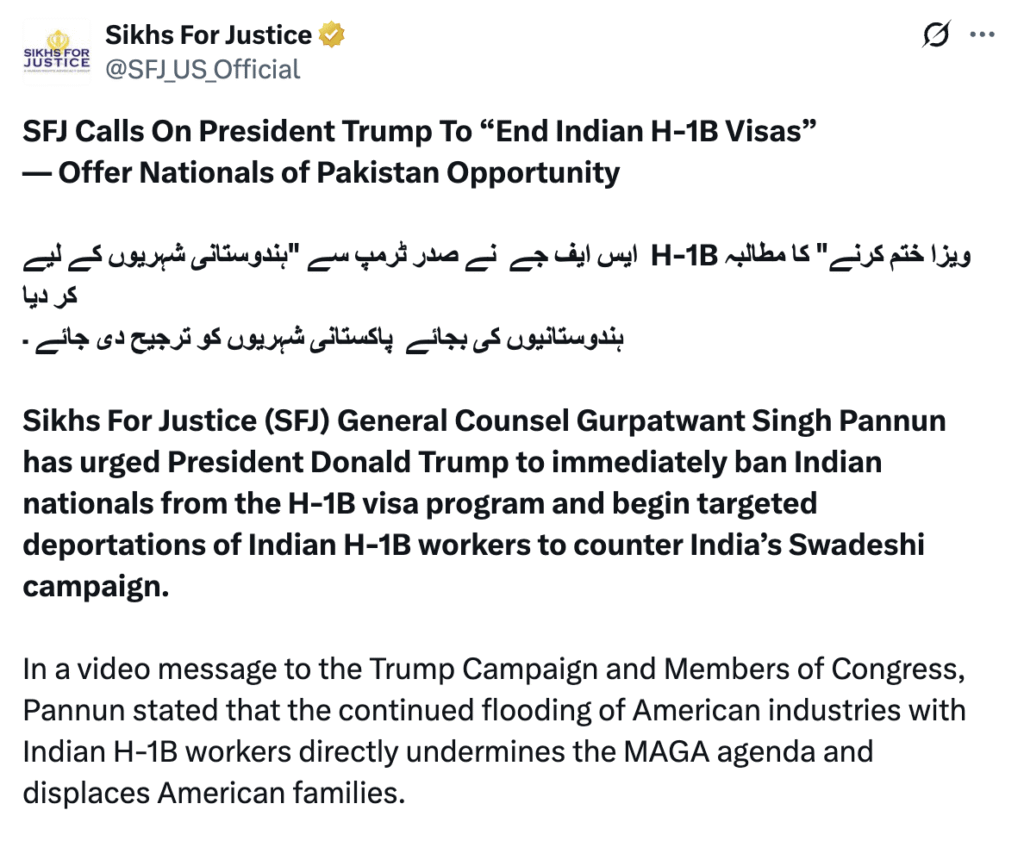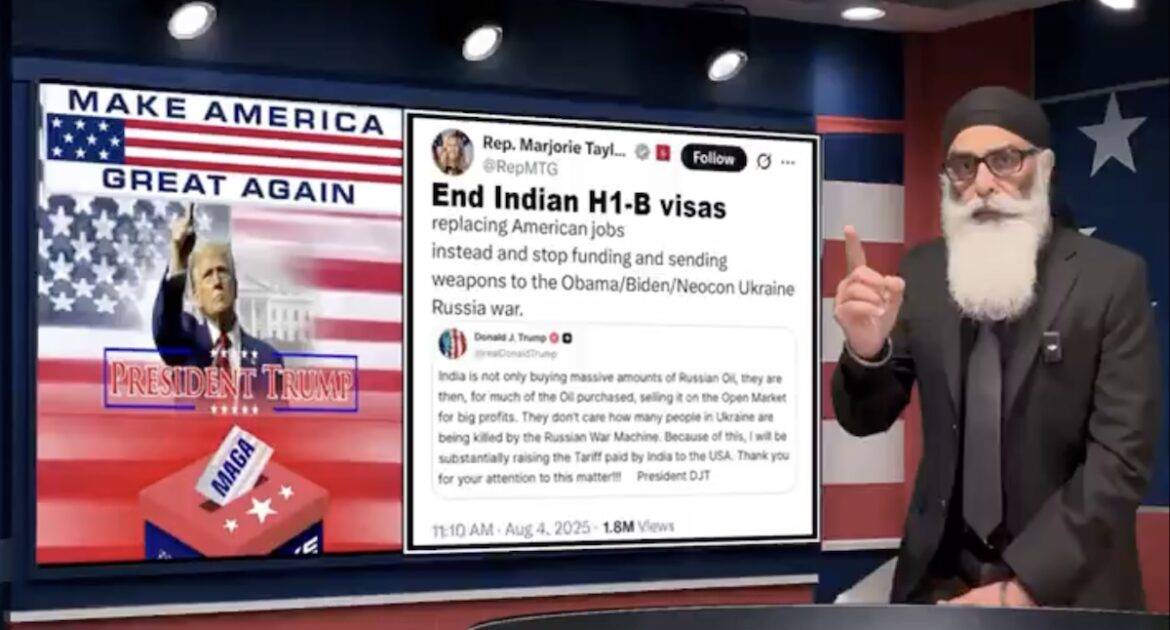AI Generated Summary
- By calling for a blanket ban on Indian nationals in the H-1B program, Pannun is effectively trying to slam the door shut on those very Sikh youth.
- He is weaponizing identity in a way that undermines the global Sikh diaspora, many of whom are contributing immensely to economies around the world.
- cutting them off from global platforms, and tarnishing the reputation of the Sikh community in the eyes of the world.
In a recent and disturbing statement, Gurpatwant Singh Pannun of Sikhs For Justice (SFJ) urged U.S. President Donald Trump to terminate H-1B visas for Indian nationals and prioritize Pakistani citizens instead. At first glance, this may seem like yet another controversial statement from a separatist group seeking headlines—but its implications cut far deeper, particularly for the Sikh community it claims to represent.

Let’s be clear: this demand is a direct attack on Sikh youth.
The H-1B visa is not just a piece of paper; for countless Sikh professionals and students, it is a ticket to opportunity, innovation, and personal growth. Sikh youth, especially from Punjab, have historically been among the most aspirational and ambitious when it comes to seeking educational and professional opportunities abroad. The U.S. has long been a land where their talent could flourish, where dreams could transform into careers in tech, medicine, research, and entrepreneurship.
By calling for a blanket ban on Indian nationals in the H-1B program, Pannun is effectively trying to slam the door shut on those very Sikh youth. His rhetoric does not target a government—it targets individuals. It doesn’t punish policy—it punishes potential.
Worse, SFJ’s proposal reeks of political opportunism. By aligning with an anti-immigration narrative and appealing to MAGA sentiments, Pannun is playing a dangerous game. It’s a strategy designed not to uplift Sikhs but to isolate them, creating wedges between communities and nationalities. He is weaponizing identity in a way that undermines the global Sikh diaspora, many of whom are contributing immensely to economies around the world.
SFJ’s rhetoric also feeds into xenophobic narratives that portray Indian immigrants, including Sikhs, as job stealers and societal burdens. In fact, Sikh professionals have long been respected contributors to American industry and civic life. They are doctors, engineers, entrepreneurs, and community leaders. Painting them as threats undermines the values of hard work and meritocracy that Sikhs hold dear.
Let us not forget that Sikh teachings emphasize justice, equality, and progress. SFJ, by contrast, offers a message of division, regression, and betrayal.
To young Sikh men and women studying for their GREs, working night shifts to save for a U.S. college application, or preparing for tech interviews at multinational firms—this message from SFJ is a slap in the face. It tells them that their dreams are expendable for a political agenda that seeks chaos over change.
In a time when we should be empowering our youth, groups like SFJ are doing the opposite: cutting them off from global platforms, and tarnishing the reputation of the Sikh community in the eyes of the world.
It’s time for the global Sikh community to see through the facade. The real resistance isn’t just against unjust policies—it’s also against those who use the name of justice to strip away opportunities from our youth.




